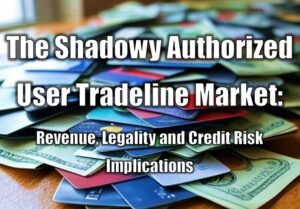
Guest Editorial
I have been involved as an expert witness in wrongful repossession and negligent hiring litigation in approximately 25 lawsuits. These lawsuits included such claims as wrongful death where the debtor was run over by the tow truck and died as a result, serious and permanent bodily injury, cases where a debtor shot the recovery agent and cases where the recovery agent shot the debtor, cases of physical altercation on the part of the debtor or on the part of the recovery agent and cases of forcefully breaking into closed structures.
Most of these lawsuits involved the faulty and/or reckless operation of the tow truck and negligent hiring and in every case I have been involved in the recovery agent had little (2 weeks of “ride along”) or no actual training in the self-help repossession process and no professional credentials such as certification. It is astounding to me that, with the courts holding the creditor liable for the acts of the recovery agents they hire, the creditor (in every case I have been involved in) does not mandate proof of training and certification from the recovery agents they hire.
However, there is another, very important aspect of the self-help repossession process which was not a part of any of these cases. In the hundreds of depositions I read there was a total absence of allegations of third party disclosure of non-public personal information (NPPI). Apparently the recovery industry as a whole already recognizes the importance of protecting NPPI from third party disclosure. What is new about protecting NPPI is that now, with the creation of the CFPB and compliance mandates by the lending community recovery agents are now required to have a specific, written process which, I think we would all agree should be a critical part of the training of collateral recovery specialists.
With that being said, I think we would all also agree that, as important as it is to protect NPPI from third party disclosure such a disclosure would not normally cause a death or serious bodily injury to a debtor, a recovery specialist or third party. And, in my opinion the monetary awards in such (NPPI) litigation would be far less than awards in death and bodily injury lawsuits.
The new CFPB and lender compliance mandates are primarily designed to protect the public safety from financial improprieties and of course, that is a good thing. But, what about the public safety as it relates to the public’s physical safety?
The last case I was involved in the recovery agent (and I use that term loosely) forcefully entered a closed structure on a third party’s property to effect a repossession. When the debtor came out of his residence the recovery agent, in trying to flee from the scene ran over the debtor causing serious and life-long internal and external injuries. In our investigation of this recovery agent’s background (which the recovery agency owner apparently did not do and the creditor did not mandate that the recovery agency owner show proof of a background check or proof of adequate training) we found the following; a driving record that included DUI, willfully operating a motor vehicle in a reckless fashion with alcohol in his system, and intentionally leaving the scene of a vehicle crash where he was at fault. He was subsequently sentenced to payment of fines, complete a Mothers Against Drunk Driving Impact Panel and 3 years probation. He left the state to avoid complying with the sentence of the court and a bench warrant was issued for his arrest. The bench warrant is still in effect but this guy left the state where the warrant is still active.
After he was hired by the recovery agency subsequently he drove his tow truck over the debtor mentioned earlier in this article causing life-long internal and external injuries and after that he injured another debtor while working another repossession assignment. He was never disciplined or terminated by the recovery agency he was employed with and eventually quit his job, stating that he was not making enough money.
In my opinion, such lack of background checks and professional training and certification of such training adds up to a dangerous “disconnect” between the lending community and recovery agency owners and creates a serious public safety issue that need not be. This disconnect could be easily “cured” by the lending community mandating proof of adequate training and certification of the recovery agents they hire. This would not only address the public safety and better manage the “inherent” risks associated with the self-help repossession process, in the event of litigation it would also serve to mitigate the liability of the lender client for monetary damages and negligent hiring.
In the Best Practices Section of the RISC Compliance and Operations Manual the process for hiring, training and termination provides the recovery agency owner and the lender client a clear process and common sense approach for ensuring professional competency of individuals who service self-help repossession assignments.
RISC is recognized within the collateral recovery industry as a leader in the fields of CFPB consumer protection training, risk management and industry standard compliance requirements. RISC services include: RISC Vendor Compliance Reporting (VCR), Compliant Agent Network (CAN) membership, national certification through the C.A.R.S. National Certification Program, compliance vetting and training, continuing education courses, office and storage facilities inspections, business consulting, repossession insurance consulting, lock-smith training and supplies, automotive key codes, discount programs, and a $1 million Client Protection Bond for members of the RISC Complaint Agent Network. For more information please email RISC at services@RiscUS.com, call 866-996-RISC (7472), or visit our website at www.RiscUS.com.
Be safe,
Joe Taylor
Vice President
Director of Education
RISC











Facebook Comments